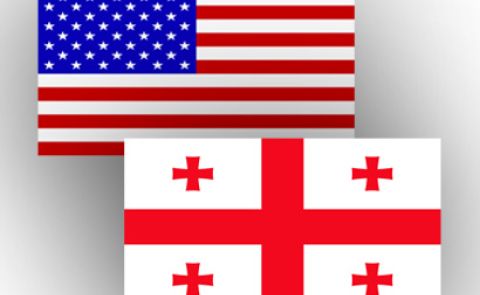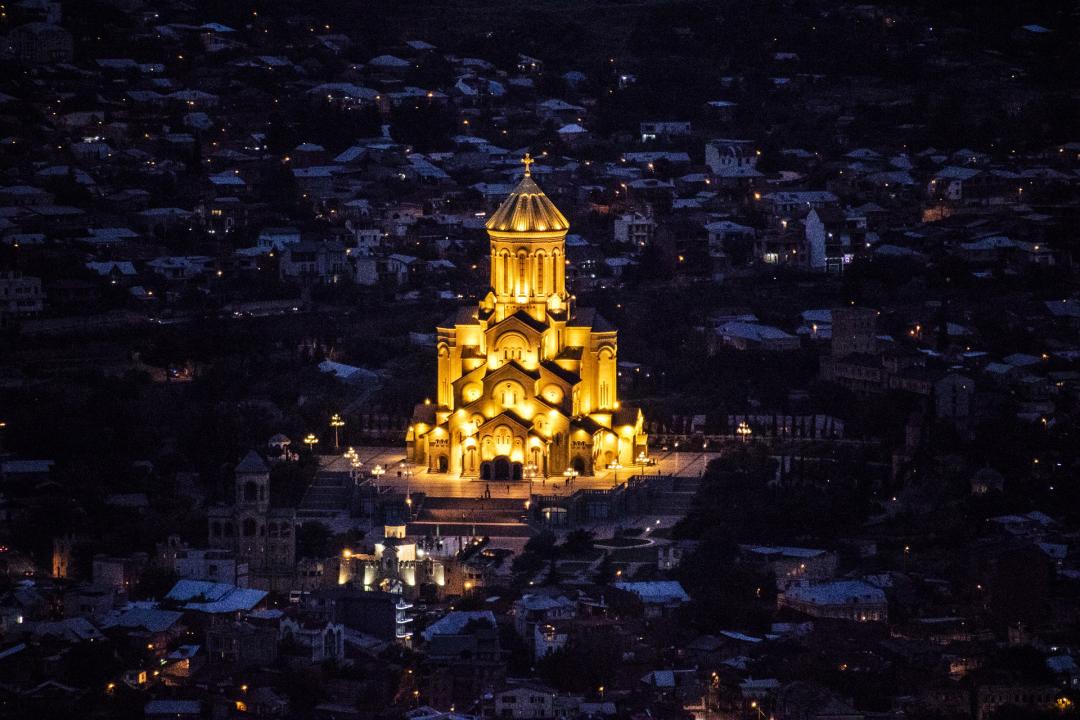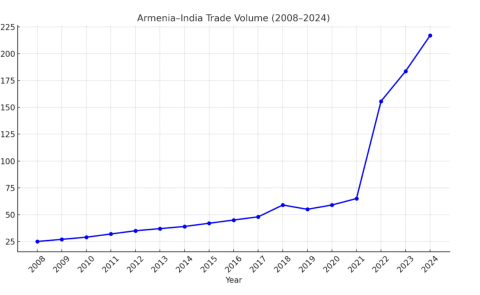
Risk assessment of Russian religious and political influence on Georgia's Orthodox Church and conservative groups

Dr. Beka Chedia is Researcher and Assoc. Professor of Political Science from Tbilisi, Georgia. He is a Country Expert (Georgia) in the several international research programmes, political analyst and writing contributor to several leading think tanks, research centers in Europe in US. He had been a visiting scholar at several higher educational institutions and think tanks in Western and Eastern Europe.
Starting in the 1990s, the Georgian Orthodox Church has strengthened and turned into a powerful socio-political institution. On the one hand, the Georgian Church, acquired a colossal influence among the population of the country, but on the other, is often accused of being under Russian religious and political influence. There is a lot of evidence that the Church contains a dominant wing of pro-Russian minded influential clergy. This conservative group became the main actor against the westernization of Georgia.
The patriarchate, as an administrative body of the Georgian Orthodox Church, is the only institution that independent Georgia inherited from the Soviet Union unchanged. Even though the Soviet Union was an atheistic country, the patriarchate as an institution still existed as one of the forms of political control. The patriarchate in its current form, which exists in Georgia, was created in this form even under Stalin. The historical Georgian Orthodox Church had a democratic form and closer to the faithful. It was not an institution like the State Agency as it is now. Therefore, it is not at all surprising that, currently in the Georgian Church can also find such clergymen who deify Stalin.
In the conditions of independence, the Georgian Church has become one of the main pillars of Russia's influence in Georgia. The Church has become increasingly important for the Kremlin in the absence of support among the political elite and society. The majority of the population considers Russia its main enemy and the greatest political threat of their country, and the political parties are mainly supporters of westernization and support membership in NATO and the EU. Pro-Russian groups are extremely unpopular in Georgia. But the fact that the population of Georgia is very religious, more than 80% of which are Orthodox Christians and obey the Georgian Orthodox Church, has turned the Church into the most attractive and at the same time stable partner of Russia. The Church has become the main instrument to prevent the strengthening of Western influence in Georgia. In recent years, Russia has carried out many projects to increase its political influence in Georgia, political, economic, even a military invasion in 2008, although the project of “political orthodoxy” seems to be the most successful.
The fact that the Georgian Orthodox Church and the patriarchate, as an institution, closely cooperates with the Russian Orthodox Church, is no secret. In the absence of diplomatic relations between Georgia and Russia, the patriarchate even plays the role of the main communication channel between the two countries. Although this is the bright side of this matter, there is also a dark side: even though the Georgian Orthodox Church has autocephaly and in the Orthodox world has the same rights as the Moscow Patriarchate, in other words, the Moscow Patriarch is not the head of the Georgian Patriarch, the Georgian religious leaders comply with the decisions of the Moscow Patriarch. The Patriarch of Georgia is always very kind and respectful not only to the religious leaders of Russia, but to the political leadership of the country that has occupied 20% of the territory of Georgia. The Patriarchy of Georgia never violates the non-existent rules of subordination in relation to the Russian religious and even political elite. For its part, the Moscow Patriarchate and the Russian Orthodox Church perceive the Georgian Church as younger brothers. The Moscow Patriarchate has for many years ignored the full title of the Georgian Patriarch, which emphasizes the jurisdiction of the Georgian Church in the territory of Abkhazia, which is currently occupied by Russia.
The full title of the Patriarch of Georgia Ilia II is - His Holiness and Beatitude, Catholicos-Patriarch of All Georgia, the Archbishop of Mtskheta-Tbilisi and Metropolitan Bishop of Bichvinta and Tskhum-Abkhazia, although for many years the Russian patriarchate and the political leadership defiantly refuses to indicate full status in official documents or in letters addressed to the Patriarch of Georgia.
It is noteworthy that even though the Russian state has recognized the occupied regions as independent countries, the Russian Orthodox Church formally recognizes the jurisdiction of the Georgian Church in the occupied territories, although it encourages the creation of a Church independent from Georgia in these territories.
After the Georgian-Russian war in 2008 and the occupation of part of the territory of Georgia, the Patriarch of Georgia visited Moscow at least 5 times, where he met with both religious leaders and the presidents of Russia. After one of these visits to Moscow, the Patriarch of Georgia said about President Putin that he is a "warm and wise man," which caused bewilderment in Georgian society.
The Patriarch of Georgia often writes open letters to the Patriarch of Russia to congratulate his birthday or to ask for the release of Georgian citizens who are held hostage by Russian occupation forces. As usual, the Russian Church uses this situation to send a message to the Georgian society - the Orthodox faith unites us, we can manage without NATO and the EU.
The Patriarchate of Georgia never makes critical statements about the Patriarchate of Russia or the Russian authorities. The Georgian Church does not currently recognize the autocephaly of the Ukrainian Church - it is also perceived as clear evidence of the de facto subordination of the Georgian Church to the Moscow Patriarchate.
Patriarch of Georgia, who is one of the most popular and influential personalities in Georgia, has Russian spiritual education and his biography is closely connected with Russia. Against the background of reproaches from the Georgian society about the cooperation of the patriarchate with the Kremlin – the patriarch spoke several times, although restrainedly, in favor of Georgia's entry into NATO and the EU.
Although currently, Patriarchal Locum Tenens Shio Mujiri's attitude toward this issue is unknown. Shio Mujiri, who is mentioned as a possible future Patriarch of Georgia, also has a Russian background as he studied at the Moscow Theological Academy and Saint Tikhon’s Orthodox University. It is noteworthy that, compared with other Georgian Orthodox hierarchs, he studied in Russia not in Soviet times, but Georgian independence. Therefore, in relation to him in Georgia, many questions and suspicions arose about his ties with the Russian Orthodox Church and with the political leadership of Russia. Patriarchal Locum Tenens has called these accusations "gossip and slander."
The biographies of many other high clergymen are closely connected with the USSR and Russia, which raises many questions. For example, the Holy Synod (the highest deliberative body of the patriarchate), under the leadership of the Patriarch of Georgia, usually includes 46 (including the patriarch) higher hierarchs. Of the total composition, the majority received either spiritual or civic education in Russia. Many clergymen also studied at the Georgian theological schools in the 1970s, when such schools were supervised by the KGB, which means that they could not be unrelated to the then regime. Noteworthy is the fact that almost half of the composition of the Holy Synod served in the Soviet army. For instance, one of them did military service on the territory of the German Democratic Republic in 1982-1984. An interesting fact is indicated in biography one of the members of the Holy Synod Archbishop Zosime, after the end of his service in the Soviet army in 1972-1974 that he realized that he should dedicate his life to Church and in same year enrolled in the theological seminary.
Such dubious biographies and the background of many representatives of the Church makes them vulnerable to the Russian special services. In September 2021, secret materials about the results of many years of surveillance by the Georgian security service, including against the clergy, were anonymously leaked to the Georgian media. From these secret documents, it becomes known that the Georgian special services were collecting information, including on the connections of both Church leaders and ordinary priests with Russia. For example, the documents describe how one of the metropolitans regularly communicated with a Russian citizen and conveyed detailed information about the political situation in the country, about the balance of power in the patriarchate. Another priest spoke regularly with the Deputy Minister of Defense and with the Deputy Minister of Foreign Affairs of Russia, and so on. The documents contained information about specific representatives of the Church who regularly received instructions from Russia. The impact on the Church and the bribery of its individual representatives of the Church is actively taking place with the help of Russian businessmen of Georgian origin.
In the Holy Synod of the Georgian Church, there are no hierarchs who have received a religious education in a country besides Georgia and Russia. Though it seems that one of the hierarchs completed spiritual courses in Serbia (also closely connected with Russia). Recently, a conflict even arose between the patriarchate and a former professor of the theological academy, who made efforts to send the students for spiritual education to Greece, which was categorically opposed by the patriarchy. The Georgian Patriarchate does not encourage spiritual education abroad, apart from Russia. Not to mention the fact that the religious literature spread in Georgia is based on the Georgian translation of the Russian-language theological literature.
Not only the Georgian Church as institution and but also multitude of clergymen play the role of the soft power of Russia in Georgia. During sacred services, very often the highest hierarchs and influential clergymen, even during religious rituals in churches and outside of it, preach sympathy for Russia as a country with the same religion. Lately, anti-Western rhetoric on the part of the country’s religious leaders has become louder and louder. Many local religious leaders insist on the unacceptability of liberal and Western values and predict an apocalypse in the event of a rapprochement between Georgia and the West. Archbishop Spiridon (Abuladze), member of the Holy Synod of the Georgian Orthodox Church, said that Russians, Ukrainians, and Belarusians are one people and that in Ukraine, bloodshed was provoked by the West. The archbishop also mentioned that Catholics have rejoiced that Orthodox Christians in Ukraine have been killing each other and he predicts that Russia will unite all Slavic people, creating such a strong state that even Satan will be afraid. He also said, “in the USA, there are big black houses with the inscription: ‘House of Satan.’” One of the members of the Holy Synod Iobi (Akiashvili), about the Russian military intervention in August 2008 said that it served as heavenly pincers to block Georgia’s drive toward the West. Another member of the Holy Synod, Archbishop Anton (Bulukhia) called on the Georgian authorities to hold a new referendum on the possible entry of Georgia into NATO, being sure that the population would be against it this time. Another member of the Holy Synod, Head of the Education Center of Patriarchate of Georgia, Metropolitan Ioane (Gamrekeli), argues that Georgia faces a choice between Russia and the West (Europe and the US) and that choosing the path of Europe, would mean that “Georgia will not receive any economic or political profit from this.” Ordinary priests are spreading no less radical thoughts. A priest, the head of one of the small churches in one of the provinces of Georgia, Giorgi (Pavlov), repeatedly says that "America is a big prostitute." Priest Tadeoz (Saralidze) during a service said, “Georgian and Russian flags should be erected in the patriarchate, let them scold us for this, before God and before Russia we will be truthful, today the only power, real power is in Russia.”
Over the past years, Western embassies and local NGOs have organized visits for influential clergymen to Washington and Brussels (for example, to NATO and EU Headquarters) so that religious leaders can see for themselves that Europe and the West are not evil. After such visits, a certain part of the clergy did not change its negative attitude towards the West, but optimistic hopes nevertheless appeared in the country that such visits could give positive results in the fight against Russian propaganda within the Georgian Church. Since after several visits by the delegation of the Georgian Church among the clergy, shy voices began to be heard in support of the return of Georgia to the European family. Georgian hierarchs in Brussels were assured that no one is going to take away traditions, religion, or gender from Georgians, as Russian Orthodox propaganda says. For example, after the first such visit to Brussels in 2016, the Patriarchate of Georgia made an official statement, “it turned out that at NATO and the EU structures, they had wrong information about the Georgian Church, and we also had wrong views about their policy on a number of issues.”
Although in their criticism to the West, the clergy are not consistent and not sincere, because, as usual, for treatment or for the education of their family members, as usual, they choose not Georgia or Russia, but Europe and the USA. And at the same time, they prefer exclusively Western-made luxury items, expensive Western car brands, mobile phones, famous brands of clothing and accessories, and not, for example, Russian-made car brand - Zhiguli, or products from Russian clothing factories. Moreover, recently, when one of the members of the Holy Synod had a problem, and he suspected that he was being followed by the country's special services, he fled not to Russia, but to the United Kingdom and asked for political asylum.
At the same time, a new generation of clergy has already emerged, whose views are at odds with the conservative pro-Russian wing within the Georgian Church. These new members support the country's Euro-Atlantic aspirations, although they are still weak and are outside of leadership. The conservative agenda of the pro-Russian Georgian clergy doubtfully matches not only the agenda of the Moscow Church but the Kremlin. The Russian Orthodox Church considers its world-historical mission to be the preservation of traditional values and protecting against the liberal world and “the negative influence of the West.” And this takes it out of the sphere of religion, it is not even an exclusively political, but a geopolitical sphere. Under the influence of Russian Orthodoxy, the Georgian Church duplicates conservative ideas and worldviews that originate in Russia. Well-funded Russian-backed conservative propaganda to say that Russia is the defender of morality, and the West is a perverted world. Although the maturity of the Georgian society gives “a good lesson” to the so-called conservatives, on the one hand, the Georgian Orthodox Church has maintained a high rating among the population for many years (according to the latest poll, 80% of the population has a positive attitude towards Church) which is a demonstration of respect for the history and traditions of the country, but on the other hand, the desire to join NATO and the EU is becoming stronger. Regular public opinion polls show growing dynamics in favor of membership in NATO and the EU. According to the NDI poll published in early 2022, as of December 2021, 77% of the population of Georgia was in favor of Georgia joining NATO, which is 8% higher than in 2020. 83% of the country's population is in favor of joining the EU, which is 7% higher than in the previous year. It is noteworthy that after the first study visit of the delegation of the Georgian Church to the headquarters of NATO and the EU structure in 2016, the patriarchate stated about the country's membership in the EU and NATO would “be decided by the Georgian people, and the Church respects this choice.”
See Also


Armenia and India: Building New Bridges in Trade and Strategy

Between Tehran and Tel Aviv: Azerbaijan’s Neutrality Dilemma Amid Rising U.S.-Israel Tensions with Iran

From Neorealism to Neoliberalism: Armenia’s Strategic Pivot in Foreign Policy After the Nagorno-Karabakh Conflict

Georgia and Russia: New Turn in Bilateral Relations

